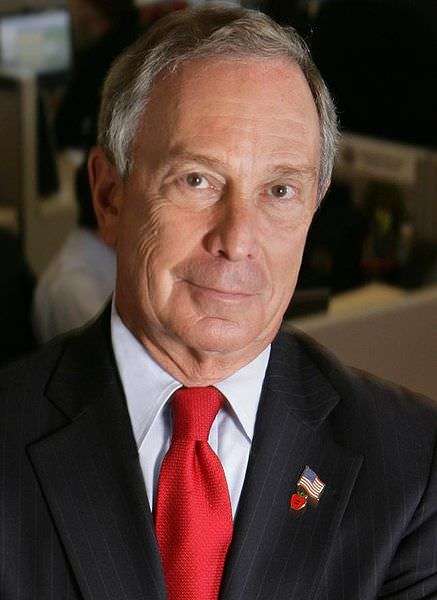Mayor Bloomberg Pushes for Ban on Styrofoam Cups

New York City elected Bill De Blasio as their new mayor earlier this month, but Bloomberg still has some time in office. Before he goes out, he wants to push a final, significant piece of legislation into law: banning plastic foam cups and plates.

Bloomberg has supported the ban since it was introduced by Brooklyn Councilman Lewis Fidler this summer. Now, at Bloomberg's request, the City Council's Sanitation Committee will hold a hearing Monday to discuss the bill.
Bloomberg has said the ban is a no-brainer for environmental reasons. According to the New York Post, Bloomberg spokesman Jake Goldman said, "When polystyrene foam is used for food service it becomes a devastating pollutant that infects our parks and waterways while never biodegrading and has been classified a carcinogenic health hazard by the National Institute of Health."
The Post also reports that plastic foam food containers add 23,000 tons of trash a year to landfills.
Although Mr. Bloomberg is notorious for his Nanny State tendencies, the plastic foam bill is not as unprecedented as, say, the large soda ban. Many cities, including Seattle and Los Angeles, have banned the substance.
However, the bill's opponents argue that the ban will be extremely costly for small businesses. The American Chemistry Council reports that replacing polystyrene cups and trays with the cheapest alternative will cost New Yorkers $91.3 million per year. MB Public Affairs found that for every $1 spent on polystyrene foam goods, businesses will have to spend $1.94 on alternative replacements, effectively doubling costs. Their report finds that "this 94% is in effect an "environmental tax" far higher than any current sales tax or import duty rates affecting the cost of consumer products." And given that most large chains in the city have already stopped using polystyrene, small businesses will be hit especially hard.
Additionally, some trade groups and politicians have noted alternative approaches to reducing environmental harm. In California, 65 cities with a total population of around 8 million (similar to New York City's) have polystyrene recycling centers. New York City's recycling centers currently reject the material, citing prohibitively high costs.
Forbes' Jeff Stier writes of Seattle's problems with their polystyrene ban:
In coffee-loving Seattle, where styrofoam cups are already banned, they've been having a hard time recycling their allegedly green paper cups, according to The Seattle Times.
They've found that mills don't want recycled coffee cups because the process takes longer, making cups more expensive to process than items like recycled cardboard boxes. And facilities that do accept the "mixed paper" that paper coffee cups and other food service items contribute to, only use it in a 1:10 ratio with higher-quality fibers. So there's not much of a market for it, at least in the U.S.
Even if Bloomberg doesn't manage to get the ban passed, his successor may try. On his campaign website, De Blasio pledges to end government use of plastic foam.


Show Comments (54)